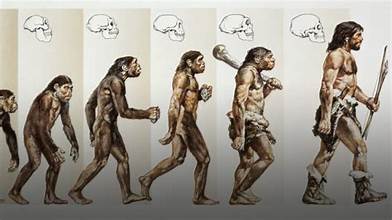
Quite a while ago now, a friend gave me a prized possession. It’s a set of books known as The Story of Civilization, authored by Will and Ariel Durant. Made up of 11 volumes, ranging from approximately 600 to 1000 pages each, the set is an accomplished and detailed chronicle of human history from its prehistorical beginning through the age of Napoleon.
Recently, a couple who are friends of ours came to our house for dinner and noticed the set on our bookshelves and was impressed we had it. They were kind enough to give us a follow-up book on the comprehensive Story of Civilization. This one is titled The Lessons of History. The jacket describes it better than I can. “In this illuminating and thoughtful book, Will and Ariel Durant have succeeded in distilling for the reader the accumulated store of knowledge and experience from their four decades of work on the eleven monumental volumes of The Story of Civilization. The result is a survey of human history, full of dazzling insights into the nature of human experience, the evolution of civilization, the culture of humanity.”
In this post, I wish to share with you some of the insights and wisdom the Durant’s share with us all in this brilliant little book.
Purpose of the Book
The authors wanted to correct errors in the Story, and in the process found themselves making note of events and comments that “might illuminate present affairs, future probabilities, the nature of man, and the conduct of states.” By states, they mean nations. They consider they are offering the reader “a survey of human experience, not a personal revelation.” I admire their humble, unbiased skill of logical observation. For this, I trust their findings. I’m excited by the relevance of these conclusions to today’s global situation.
Layout
The Durant’s titled most chapters with the use of the term history against the backdrop of certain aspects of human existence. For instance, Chapter II is History and the Earth, Chapter VI is Morals and History, Chapter VIII is Economics and History, and Chapter XI is History and War. The final two move in the direction of summary, with Chapter XII being Growth and Decay and Chapter XIII Is Progress Real. I point these out as the framework of my commentary.
The Role of Biology
Biology is a basic element of civilization, in that humans are subject to processes of evolution. Since we’re caught up in the “law” of survival of the fittest, our minds and bodies are constantly working out how to pass the tests of survival. The authors state “the first biological lesson of history is that life is competition.” We compete against one another for advantages leading to food, shelter, money and security in general. Humanity has realized that cooperation is pro-survival, so we cooperate within groups to enhance individual and team survival. The tool of cooperation makes one person, their local groups and their nation stronger.

Natural selection is another of life’s biological lessons. When competing for the resources we need to improve our chances of survival, we discover our strengths and weaknesses. These are derived from physical and psychological heredity as well as the modes of operation and traditions of our group. We are not born equal. We may be born weaker physically, but equipped with superior brain power to overcome this handicap. These abilities and disabilities, relatively speaking, affect our choices in this competitive world and thus have a hand in creating history. The strong survive in love, war and business. Nations are built this way.
The Durant’s tell us the third biological lesson of history is “that life must breed.” Nature needs large numbers of offspring to do its natural selection work. Organisms, families and species need to reproduce well. Civilizations that have become culturally high have historically arrived at a low birth rate. Those cultures that have not so evolved tend to have high birth rates. History demonstrates how that worked out for empires such as Rome, China and the Gupta of India.
In today’s global landscape, the chances of technologically advanced nations being overrun by hordes of barbarians are obviously quite low. One takeaway in this book, however, is the cultural and political influence of groups with higher birth rates are likely to increase over time as they enjoy a higher representation in the population. Sheer numbers mean greater opportunity for improved natural selection and a competitive edge.
So Much More…
For such a small book, The Lessons of History is remarkably packed with historical perspective and wisdom. In the Part II, we’ll explore history through lenses of race, morals, economics, socialism, and government. We’re just getting started, so drop on by for the next installment.